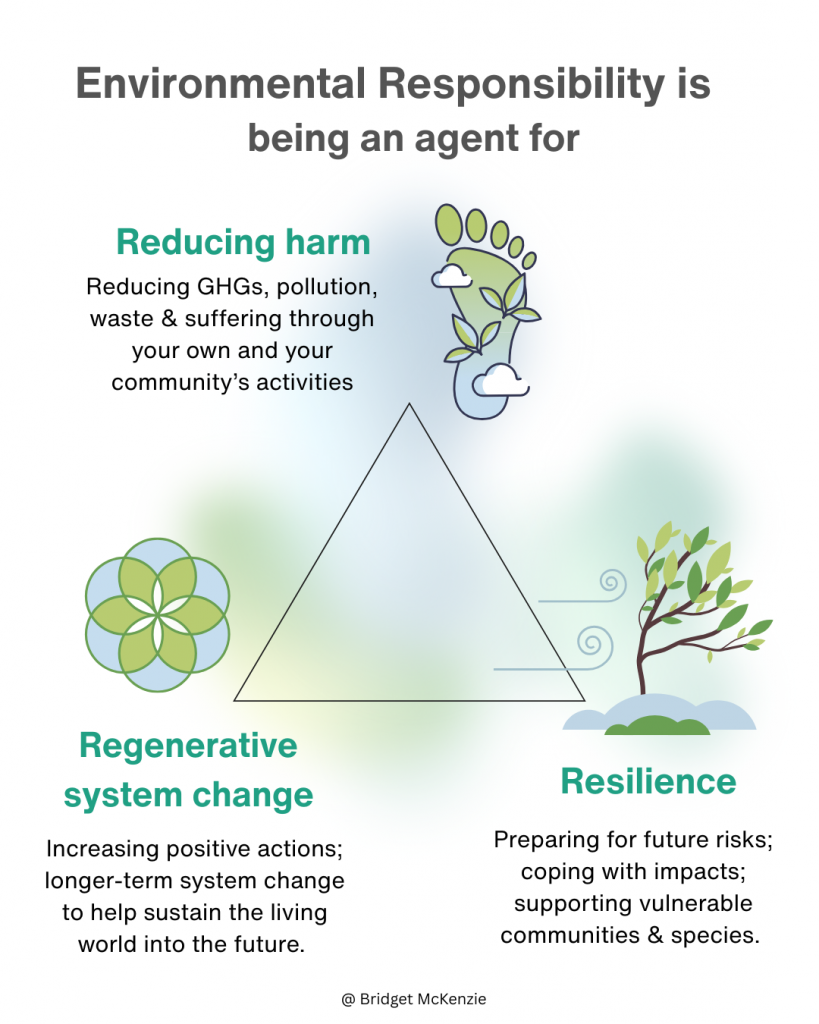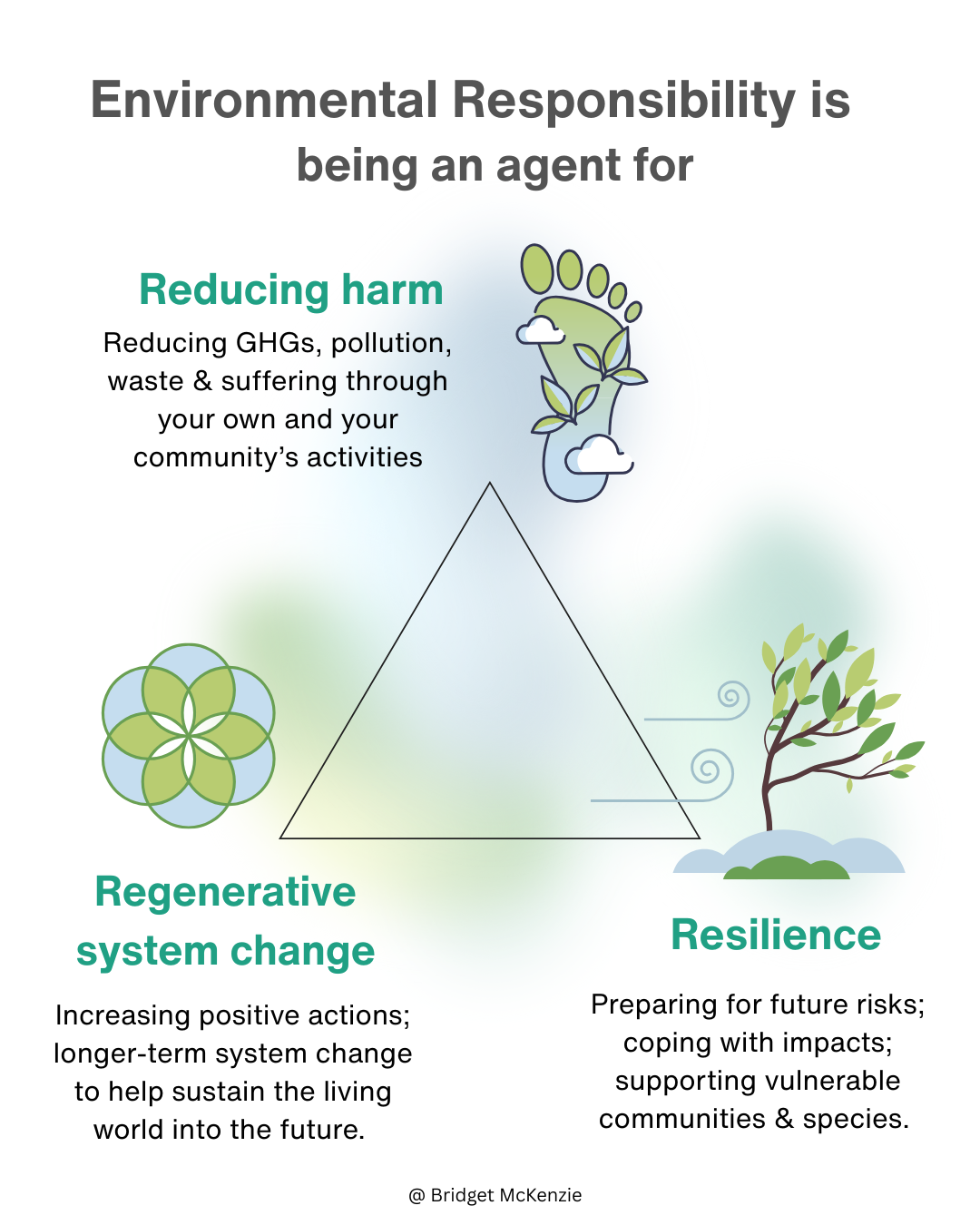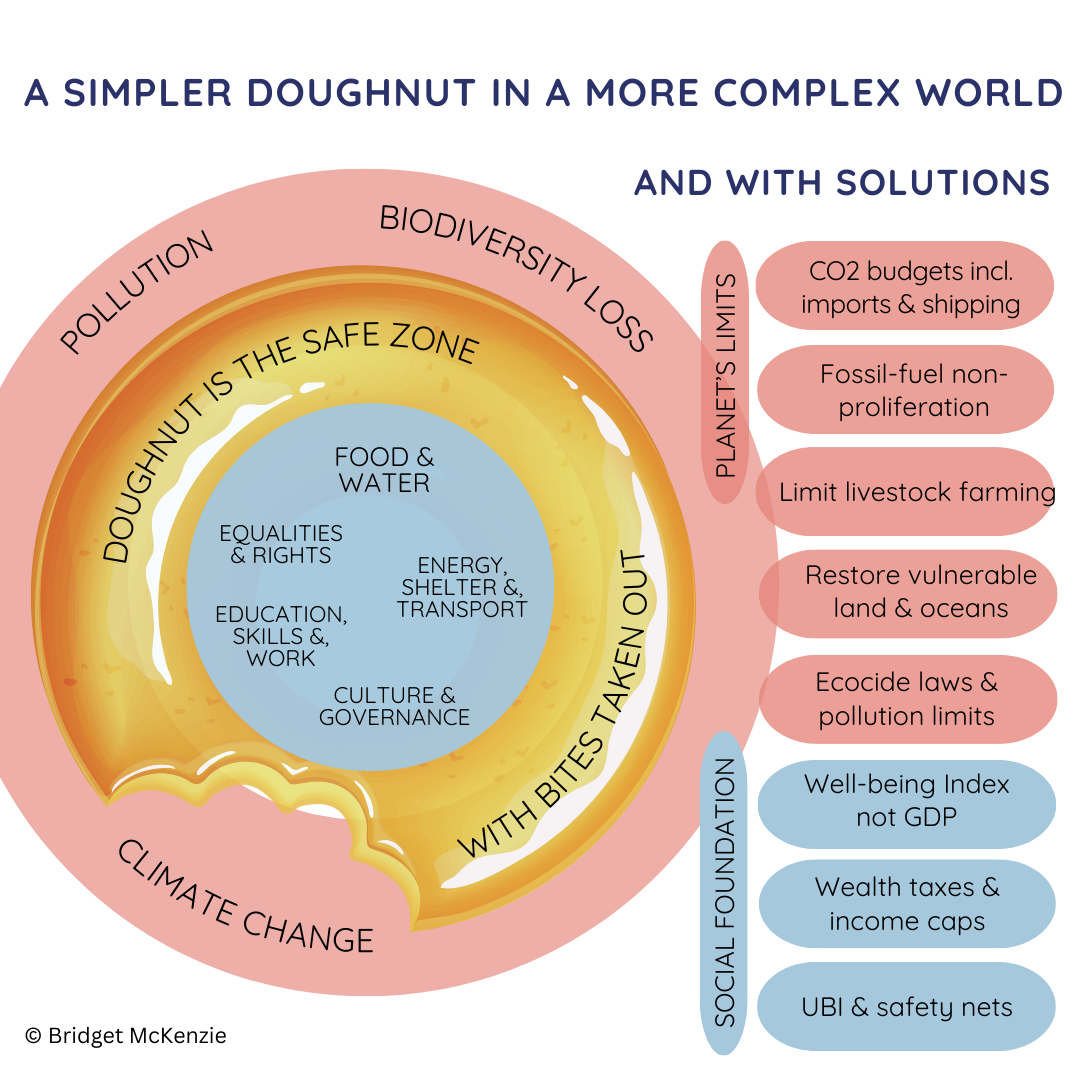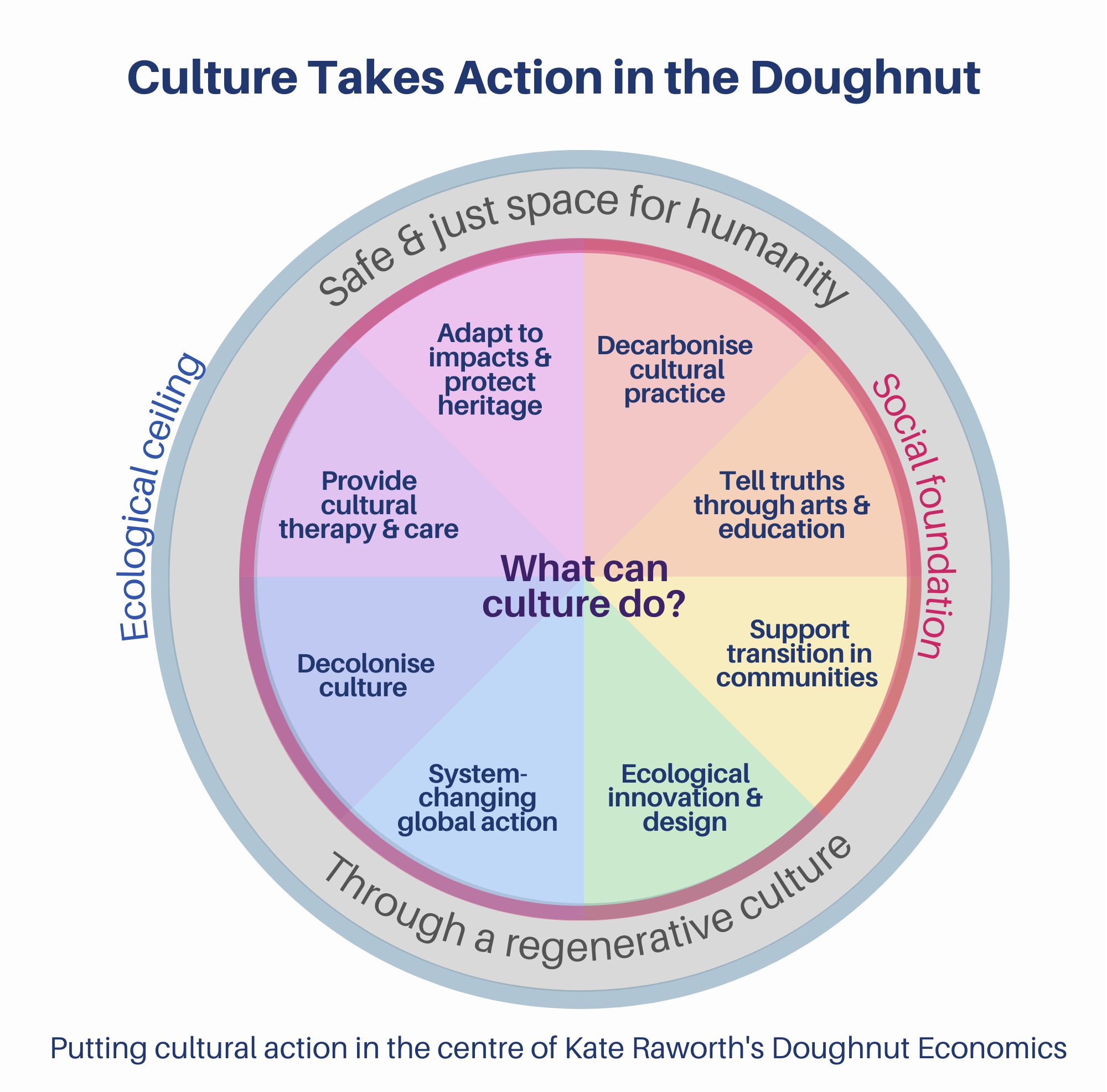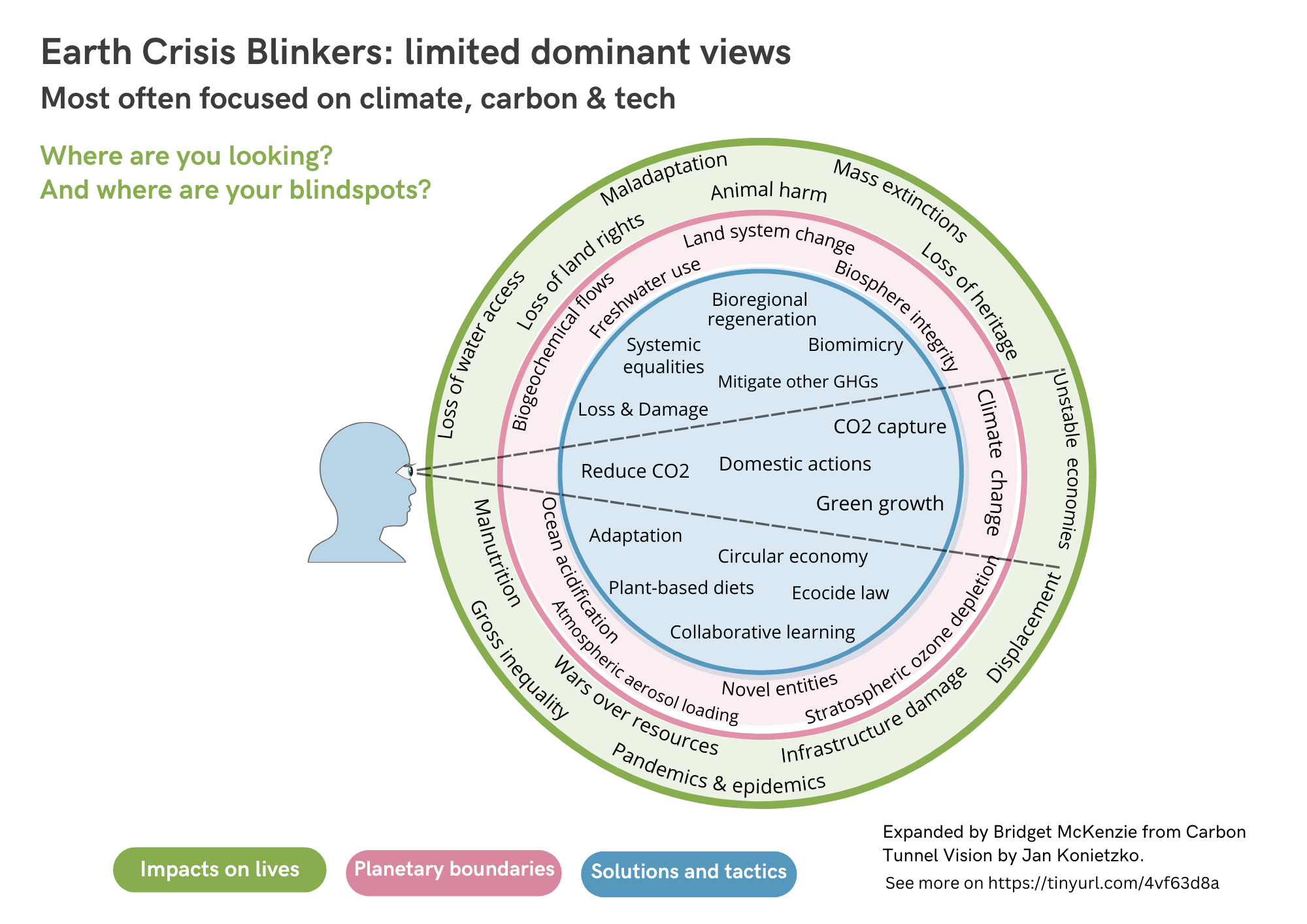I’ve written a paper that summarises my independent research on this question: What is the state of capacities in the UK Cultural sector for an alert, full-spectrum and effective response to the Earth Crisis?
And some related questions: Is there an appetite for expanding the definition of Environmental Responsibility to prioritise tackling root causes and anticipating risks? What are the barriers to developing such capacities? What are the opportunities or initiatives that could be supported?
You can read the full paper here (including a pretty hefty appendix of resources)
As this is unfunded and ongoing, this paper does not fully answer the questions although I suggest some ways forward for research and capacity-building. Please help this research continue by filling in this survey for people working in Cultural or Environmental fields, whether in the UK or elsewhere. It is anonymous and quick. It closes on December 13th 2025. https://www.surveymonkey.com/r/CultureResponseEarthCrisis
Here are the headlines
The challenge facing humanity has been described in Doughnut Economics as “Meeting the needs of people within planetary boundaries”. A more alert and full-spectrum Earth Crisis response would describe it as: “Meeting the needs of people and their biodiverse kin with reparative justice while restoring Earth systems, and while being resilient to the impacts of the breaching of planetary boundaries.”
This is a ‘more-than-emergency’ that is about ‘more-than-climate’ and in which the ‘more-than-human’ is often forgotten, and in which the Global Majority and indigenous communities are overlooked, though sometimes celebrated, but without empowerment, protection and reparative commitments.
The UK faces significant risks – particularly from Global Heating:
- Extreme weather: The UK is facing an increased likelihood of heatwaves and extreme rainfall, leading to higher risks from overheating and flooding.
- Ecosystems: There are increasing risks to marine, coastal, and terrestrial ecosystems, with damage to their integrity from cumulative stressors and extreme events.
- Food and water: Climate change is putting pressure on food production systems and increasing water-related risks such as scarcity and drought.
- Public health: There is a risk of increased mortality from non-communicable and infectious diseases, as well as facing those affected by environmentally-driven displacement and injury.
- Infrastructure: Both the built and natural environment face risks from impacts, which can devastate lives and livelihoods.
Resilience and adaptation to Earth Crisis impacts have not been prioritised in general in the UK, across civic, professional and business sectors. There is almost no public grasp of the urgent need for strategies for human and multi-species survival in the face of the realities of ecological overshoot.
Like these wider sectors, the UK’s Cultural sector does not exhibit adequate alertness in relation to the Earth Crisis.
As part of my desk research, I collected examples of manifestos, future scoping reports and strategic plans in the Cultural & Educational sectors which show that Earth Crisis impacts and responses are variously:
- simply ignored
- deliberately sidelined, seen as not popular or viable
- treated as a funding requirement or technical issue (described only as ‘the climate crisis’ and with a focus on decarbonisation)
Where environmental issues are covered, then they are only positively treated e.g.
- as an opportunity for innovation,
- all about hope (not trouble),
- as a means of appealing to younger audiences.
This moment can be framed as a ‘disruption nexus’ that makes many alternatives possible when people come together for vulnerable and affected people and species to be safe and resilient. This imagination of alternatives, the shaping of narratives, and supporting communities in the face of great challenge, offers a significant role for the Cultural sector.
Barriers to an effective response include:
- A global backlash against action for a flourishing planet, peace and equality that is funded to the tune of billions by extractive industries, right-wing thinktanks and militaristic nations.
- Resources to respond to Earth Crisis impacts do not match the level of public concern. (89% of people worldwide want to see increased political action on global warming.)
- Public Cultural institutions are entangled with the systems that promote or benefit from harms such as inequality, over-consumption and extraction.
- The UK Cultural sector is so underfunded that there is a tendency to be inward-looking and to defend its value based on existing framings of entertainment, commodity and contribution to the economy.
- Existing funds are too siloed and short-term, and do not support Culture-led programmes that dismantle harmful systems and build regenerative alternatives.
- There is a lack of diversity in the practices and structures of the Cultural sector, combined with precarity for individual artists & low-paid sector workers.
The limited framing of Cultural Environmental Responsibility means there is a lack of capacity for an effective and meaningful response, which could include:
- Shifting the framing of human-nature relations to create conditions that will restore carbon sinks & biodiversity
- Collaborating for community safety in the face of impacts
- Transitioning to a regenerative industry, agriculture and economy.
Cultural practitioners and organisations can develop capacities for greater alertness and effective strategies in response to the Earth Crisis if the framing of Environmental Responsibility is expanded to:
- Reduce or end all activities that cause harm and suffering – including greenhouse gas emissions, animal harm, ecosystem damage, waste, and unethical and exploitative practices and supply chains.
- Work for resilient communities and places by preparing for severe risks and uncertainties (e.g. food shortages, pandemics & extreme weather), co-operating to share tactics and resources, supporting vulnerable groups, and working with not against nature.
- Regenerative system change, working towards dismantling of extractive, exploitative systems, increasing any positive actions for the wellbeing of people and other species, imagining and building more reparative and regenerative ways of life. (This could be done by changing dominant narratives, supporting legal campaigns & global treaties, and being part of local actions for a green, just transition.)
Several areas of action research could help to overcome barriers to an effective response and expand the framing of Environmental Responsibility, including:
- Researching the appetite across the sector for the development of skills and knowledge for an expanded framing and an effective response.
- Collaborating with and learning from environmental and social change sectors, locally and internationally, including Global Majority and Indigenous groups, to develop strategies for human and multi-species survival in ecological overshoot.
- Amplifying the Cultural sector individuals, organisations, and networks in colonised and ecologically vulnerable places who are leading an effective response and sharing knowledge.
Here’s the survey again if you would like to share your views https://www.surveymonkey.com/r/CultureResponseEarthCrisis
